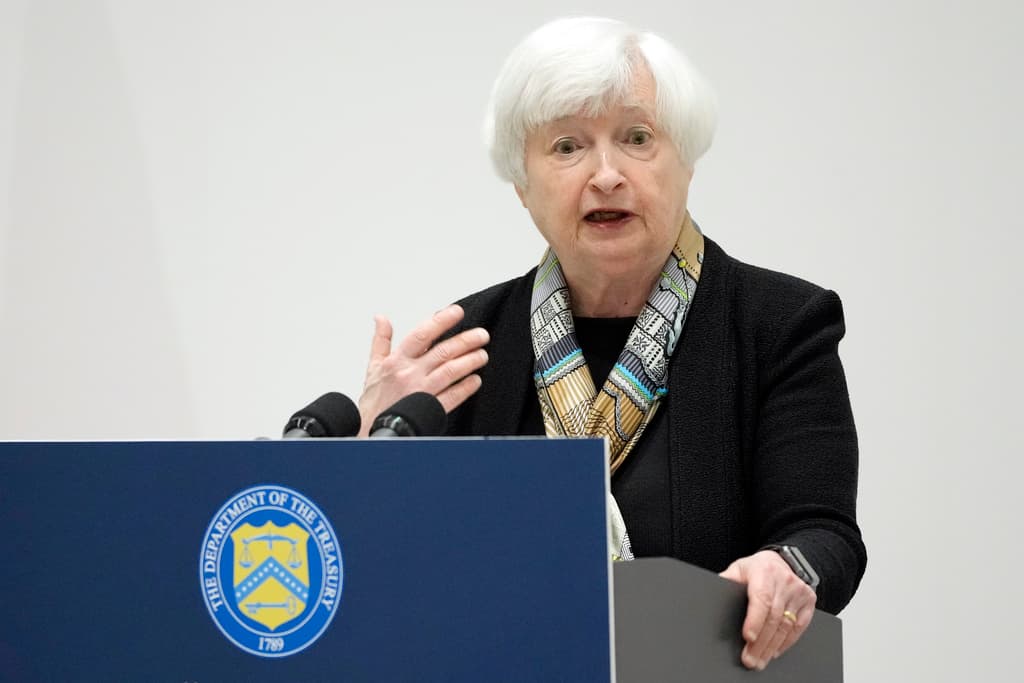A Reckless Game of Chicken by the Biden Administration Comes Into Focus in Treasury’s Latest Numbers
Government’s key bank account is now down to $49 billion — a tiny fraction of what it was a year ago and of annual outlays.

The latest numbers on the cash position of the United States suggests that the Biden administration and Treasury Secretary Yellen have been playing a reckless game of chicken with the Congress — while President Biden refuses to accept cuts in spending even as the Treasury’s cash holding has plunged to a shockingly low number.
Please check your email.
A verification code has been sent to
Didn't get a code? Click to resend.
To continue reading, please select:
Enter your email to read for FREE
Get 1 FREE article
Join the Sun for a PENNY A DAY
$0.01/day for 60 days
Cancel anytime
100% ad free experience
Unlimited article and commenting access
Full annual dues ($120) billed after 60 days

